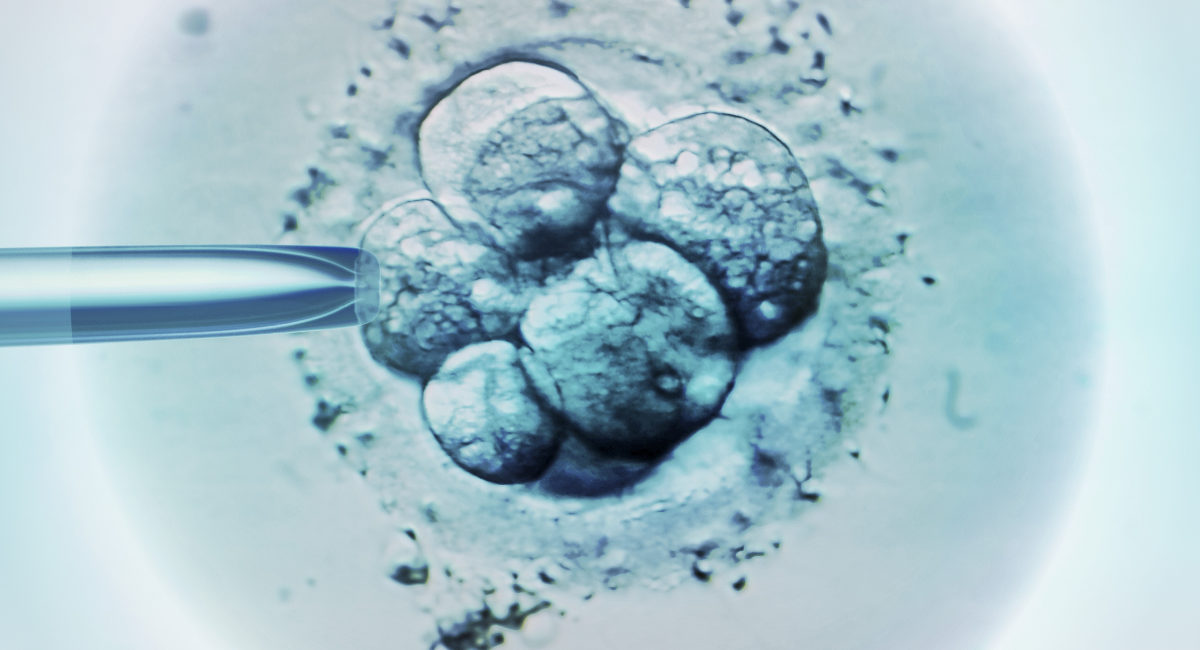A California couple is suing the in vitro fertilization (IVF) clinic they used to conceive their now one-year-old son.
In a lawsuit filed recently in the Los Angeles Superior Court, Jason and Melissa Diaz allege that HRC Fertility—an affiliate of the University of South California’s Keck School of Medicine and one of nine U.S. IVF clinics owned by Chinese fertility company Jinxin Fertility Group—knowingly implanted a male embryo with a gene mutation for a rare and severe stomach cancer that the couple was expressly seeking to avoid passing on to their offspring.
In the lawsuit, the couple further alleges that after initially admitting the mistake and apologizing to Melissa, HRC Fertility went on to manipulate her medical record and then presented her with an “altered, falsified version” wiped free of any reference to the clinic’s culpability in the error.
Couple sought IVF to avoid passing along bad genes
According to CBS News, Melissa has the BRCA-1 gene mutation that predisposes women to increased ovarian cancer and breast cancer risk. The National Cancer Institute reports that “55%–72% of women who inherit a harmful BRCA1 variant…. will develop breast cancer by 70–80 years of age.” Additionally, Jason has a CDH1 mutation for a rare and aggressive form of stomach cancer, hereditary diffuse gastric cancer, which he was diagnosed with in 2018, the same year the couple was married. After chemotherapy failed, Jason’s entire stomach was surgically removed, significantly affecting his eating and drinking on a daily basis. Jason further lost two aunts to stomach cancer in their 40s.
The Diazes sought to start a family in 2020 and opted to use IVF and preimplantation genetic testing for the express purpose of not passing along the BRCA-1 or CDH1 genes to their children. In a statement about the lawsuit, Jason commented, “We went to HRC Fertility to break the family curse of cancer and early death.”
The Diazes’ first child, who had neither mutation, was successfully transferred into Melissa’s womb in August 2020 but was lost to miscarriage. A second embryo transfer in January 2021 led to the birth of their now-one-year-old son. While the couple knew their son had the BRCA1 gene, they accepted the risk because men are less likely than women to develop breast cancer.

In July of 2022 when seeking another embryo transfer from the supply stored in 2020, Melissa learned from an HRC Fertility counselor that their son does have the stomach cancer gene. The lawsuit alleges that HRC Fertility was aware of that fact at the time of the embryo transfer, but did the transfer anyway; later, a representative from HRC Fertility “admitted that HRC had made a serious mistake” and requested a meeting with Jason and Melissa.
But the Los Angeles Times reports that when Melissa repeatedly requested her complete medical records, she received no response. Finally, she received an “altered, falsified version” of the embryo report without the handwritten notes she’d previously seen showing her son had a “mutant allele detected” for the stomach cancer gene. The couple is now suing for fraudulent concealment and separately seeking arbitration for the transfer of the wrong embryo.
In a statement, HRC Fertility appeared to deny culpability, commenting, “We deeply empathize with this family’s situation. However, the patients associated with the case sought genetic testing and genetic counseling outside of HRC Fertility, and with an outside party; they wished to have a male embryo transferred, which we carried out according to the family’s explicit wishes and in accordance with the highest level of care.”
The dangers of IVF
The Diazes’ experience highlights several troubling aspects of the essentially unregulated assisted reproductive technology (ART) industry, in which IVF is the most common procedure type. The commodification of human beings is an unintended but inevitable consequence of ART procedures, as embryos are judged, ranked, weeded out, or indefinitely stored based on their compatibility with the parent or couple’s goals. When you buy a product, you’d want your money back or some other compensation if the product is defective or otherwise not as promised. But what about when the purchase is a person? Or when there’s a mixup in the lab? And what happens to the surplus of products?
While Jason personally knows the difficulties of living with stomach cancer, his comments as quoted by news media don’t reflect the reality that if his own parents had had access to and utilized just such technology as he and his wife did, he himself might not exist. And were it not for the IVF clinic’s error, the couple wouldn’t have the “very chatty and friendly” son Melissa described in a news conference as a “very happy boy” at all.







